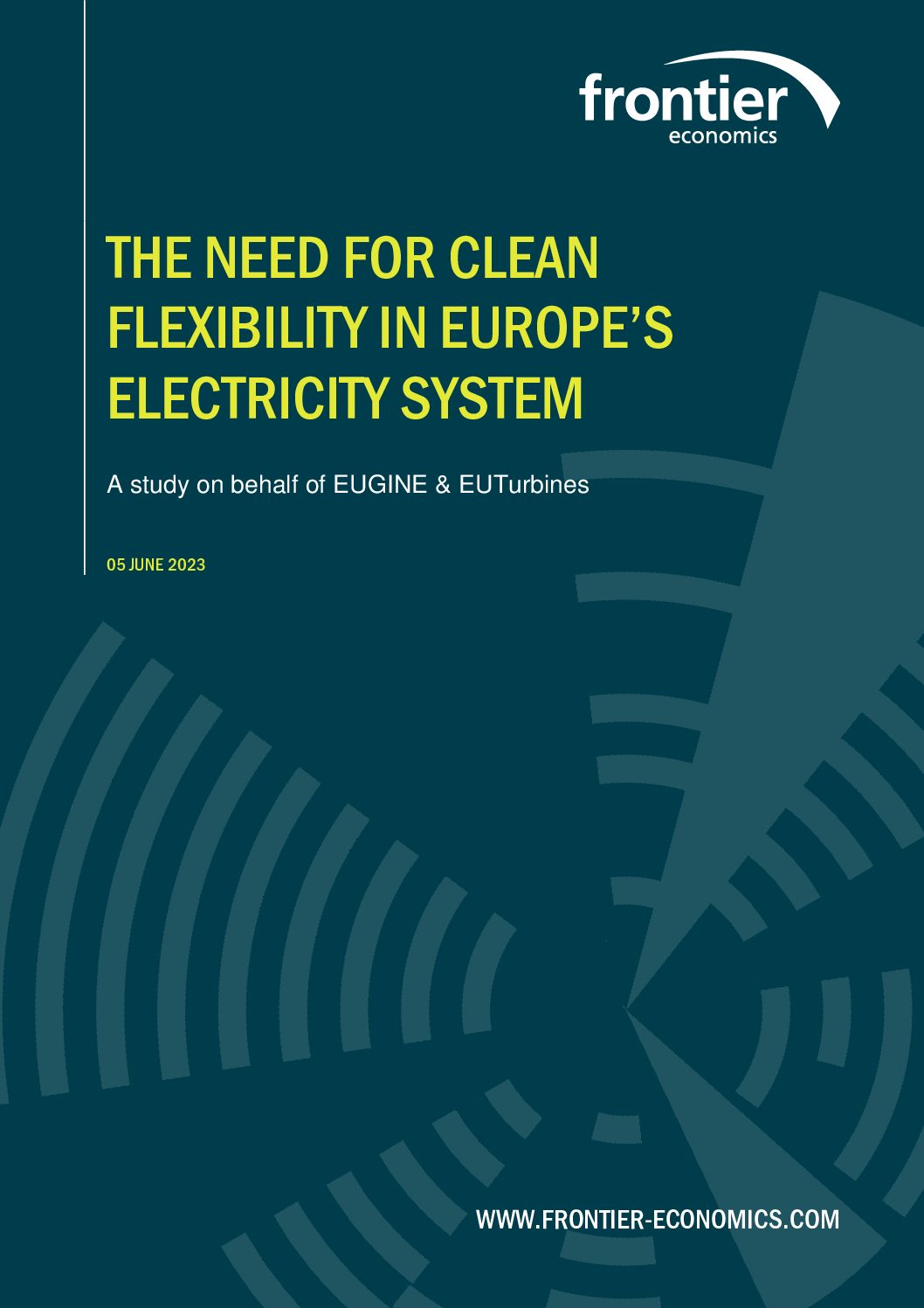The Need for Clean Flexibility in Europe’s Electricity System
04 December 2023
Towards 2050, the electrification of large sectors of the economy will significantly increase electricity demand. Higher electricity demand coupled with high shares of variable generation –notably from wind and sun– will increase the need for flexible and dispatchable loads, including flexible generation running on climate-neutral gases.
In the study The Need for Clean Flexibility in Europe’s Electricity System, carried out on behalf of EUGINE and EUTurbines, Frontier Economics shows that prolonged periods of high residual load – when variable renewable energy cannot cover demand – will occur all over Europe in the years 2040 and 2050, even assuming electricity could be transported without any congestion issues or transmission losses.
Frontier Economics confirms that those high residual load supply gaps could require 350 GW of flexible, dispatchable power plants running on high-energy-density fuels such as hydrogen and renewable gases, in addition to batteries and demand management. If we consider that, today, the European installed capacity of dispatchable power plants running on gases is below 200 GW, the size of the challenge becomes clear.
We have also produced an animated summary of the study. Watch it online below and feel free to share it!
Download the study summary here or view it below:
With these figures in mind and in the context of the ongoing review of the European electricity market design, the study provides a series of recommendations on how to foster investments in climate-neutral long-term flexibility solutions, from rebuilding trust through a stable regulatory environment to ensuring sufficient and fair income from reliable revenue streams is available for flexible generation.






